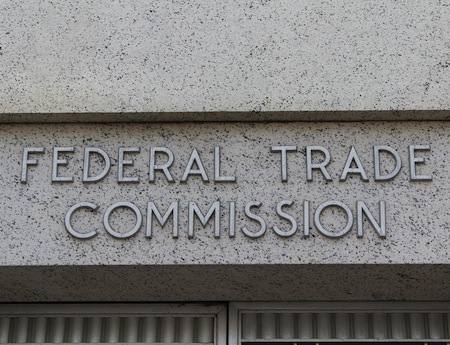FTC: We'll Be Watching for TV Habit-Tracking Apps

The smarter way to stay on top of broadcasting and cable industry. Sign up below
You are now subscribed
Your newsletter sign-up was successful
The Federal Trade Commission is advising mobile app developers that it has its eye on technology that could allow phones to monitor TV viewing habits and relay that to targeted third-party advertisers.
In a blog post Thursday, the FTC pointed out it was sending letters—from the associated director of the Privacy and Identity Protection division—to app developers whose apps use software created by Silverpush that runs in the background and enables phones to "listen" for embedded audio signals in TV programs to determine what TV shows or ads are playing (sort of like a Shazam for TV content), even when the app is not being actively used.
The app "could" create a log of such TV content.
"Upon downloading and installing your mobile application that embeds Silverpush, we received no disclosures about the included audio beacon functionality—either contextually as part of the setup flow, in a dedicated standalone privacy policy, or anywhere else," the FTC said.
The FTC's ability to take action is pretty much limited to pursuing unfair or deceptive practices.
Silverpush has said that its beacons are currently not embedded in any TV shows aimed at the U.S., but if that application "enabled third parties to monitor television-viewing habits of U.S. consumers and your statements or user interface stated or implied otherwise," FTC said, "this could constitute a violation of the Federal Trade Commission Act."
Then, in what an FTC blogger with a sense of both humor and style called "the verbal equivalent of that point-to-our-eyes and then point-to-you universal symbol for 'We’re monitoring this,'" the FTC encouraged them to disclose the potential for such monitoring so customers could decide.
The smarter way to stay on top of broadcasting and cable industry. Sign up below
Does the FCC have any role in this TV viewer, broadband monitor, privacy issue? Apparently not.
The FCC is asserting customer information privacy authority—what sites they visit—over broadband providers via its Title II reclassification of Internet access and already has authority over customer privacy in traditional video—what shows they watch—but has not asserted authority over edge providers.
"Section 222 governs the privacy practices of telecommunications carriers and VoIP providers," said an FCC official on background. "The apps in question do not provide telecommunications or VoIP services. Section 201's prohibitions against unjust or unreasonable practices likewise only applies to the practices of telecommunications carriers. Sections 338 and 631 govern the privacy practices of satellite and cable providers - not apps."
Contributing editor John Eggerton has been an editor and/or writer on media regulation, legislation and policy for over four decades, including covering the FCC, FTC, Congress, the major media trade associations, and the federal courts. In addition to Multichannel News and Broadcasting + Cable, his work has appeared in Radio World, TV Technology, TV Fax, This Week in Consumer Electronics, Variety and the Encyclopedia Britannica.

